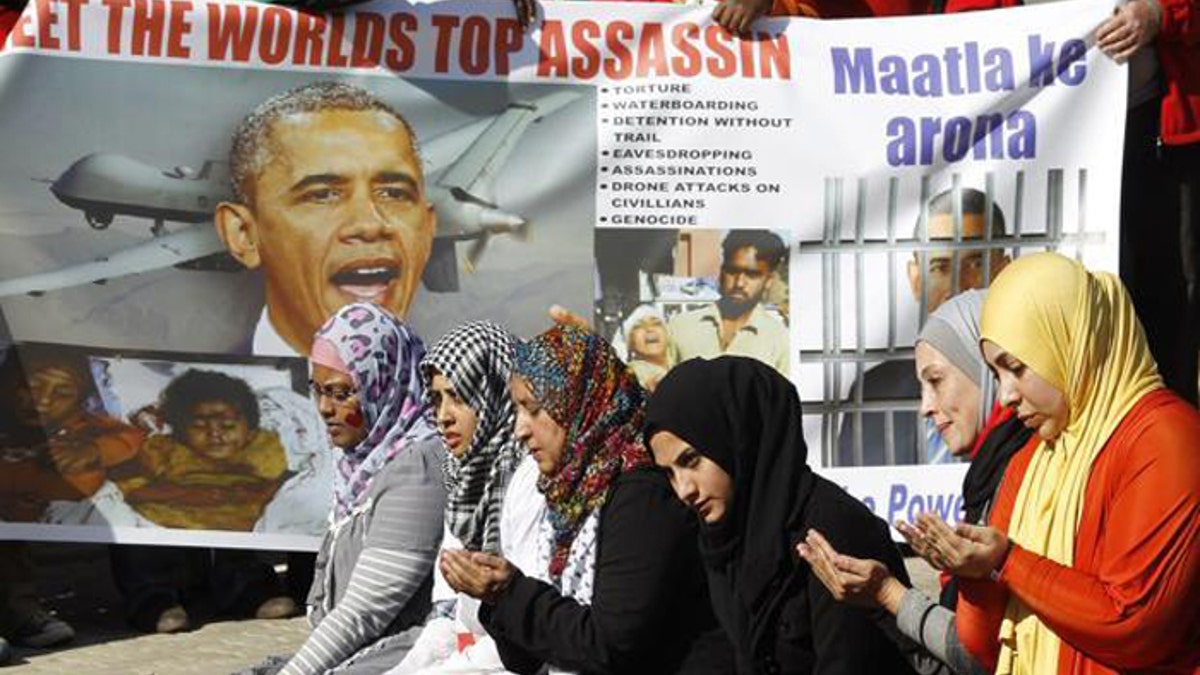
Anti-American sentiment in Cairo could be driving the U.S.'s staunchest Arab ally into the arms of Russia. (Reuters)
As America’s longtime strategic alliance with Egypt unravels, the military government in Cairo is looking to Russia in its search for a new patron.
For three decades, nearly all of that time under the presidency of Hosni Mubarak, Egypt was the U.S.’ staunchest Arab ally. The relationship helped the U.S. stabilize much of the Middle East and proved extremely lucrative for Egypt, which received billions in foreign aid from America. But the Obama administration’s backing of the short-lived Muslim Brotherhood-backed regime of Mohammed Morsi has spurred anti-American sentiment in Egypt.
[pullquote]
“The U.S. has no friends left in the Middle East,” Egyptian political activist and founder and president of the Middle East Freedom Forum Magdi Khalil told FoxNews.com. “The entire Gulf area is so angry at the Obama administration. Nobody can accept the relationship between the U.S. and the Muslim Brotherhood, and it appears that’s where the Obama administration is aligning itself.”
This week, Russia’s defense and foreign ministers wrapped up a visit to Egypt’s capital, where leaders from both sides participated in the highest-level talks between the two countries in recent memory. The talks came after the U.S. cut about a third of its $1.5 billion annual foreign aid to Egypt, help that included $1.3 billion in military aid. The U.S. also halted delivery of several F-16 fighter planes it had pledged to Egypt.
Morsi was democratically elected in 2012 after a popular revolution ousted Mubarak. But after he rammed wholesale changes to the Constitution through a friendly parliament and gutted much of the judiciary that would have checked his power, popular demonstrations rose against Morsi. In July, the military removed him from office and he currently awaits trial for crimes preceding his tenure as president.
The Obama administration roundly criticized the military leadership for ousting Morsi, and then made the decision to cut off aid.
But Cairo may find a new benefactor in Moscow, as the geopolitics of the Middle East undergo a shakeup. Saudi Arabia, another longtime U.S. ally, has also been highly critical of the Obama administration, both for its support of Morsi and for its unilateral overtures to Iran.
By cultivating Egypt at the expense of the U.S., Moscow could greatly raise its stature in the region. Another fault line between Moscow and Washington is Syria, where Moscow supports Syrian President Bashar Assad in his bloody civil war against rebels backed by the U.S.
“Russia, step-by-step, is starting to be one of the main players in the Middle East,” Khalil said, but he also pointed to the many benefits the Egyptian government will reap from the relationship.
“It’s a message to the U.S. that Egypt will not accept their relationship with the Muslim Brotherhood,” Khalil said. “The Saudis and the United Arab Emirates have already said they will grant the Egyptians money to buy weapons from Russia. Egypt can’t turn down this great offer.”
Khalil said this alliance is also a message from the Egyptian government to the people. The “mood in the Egyptian streets,” is completely against the U.S., he said.
